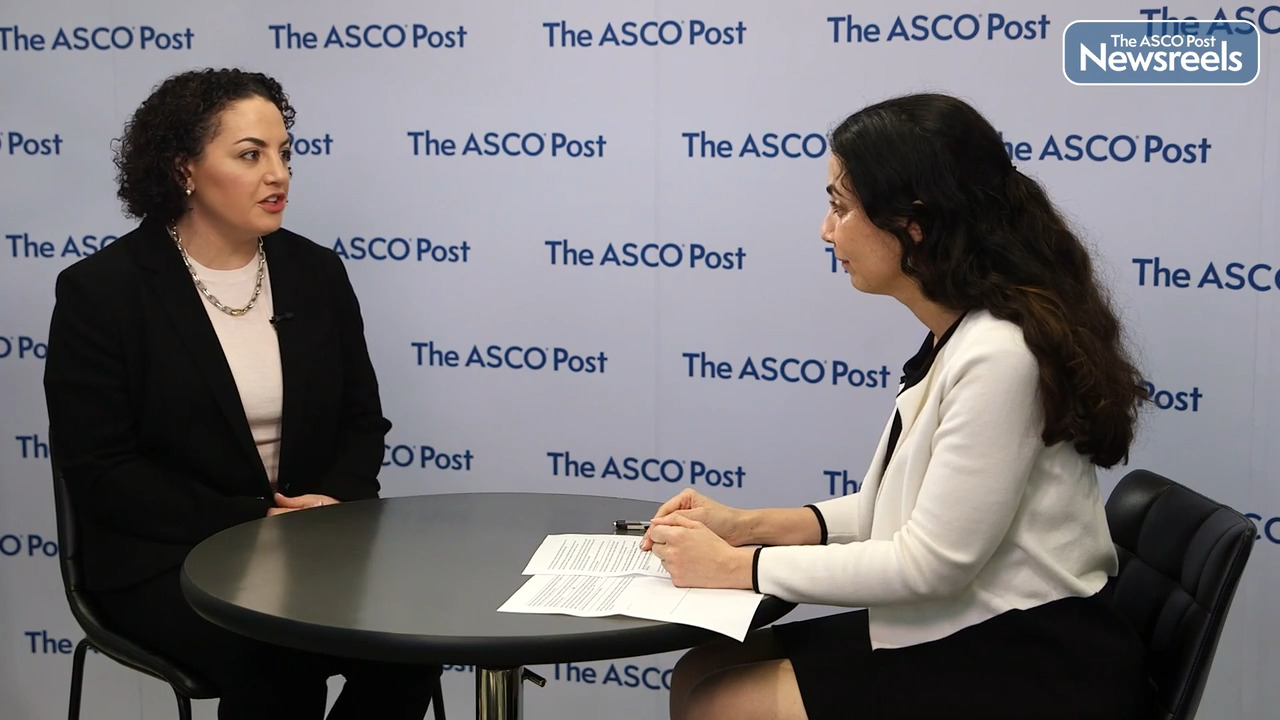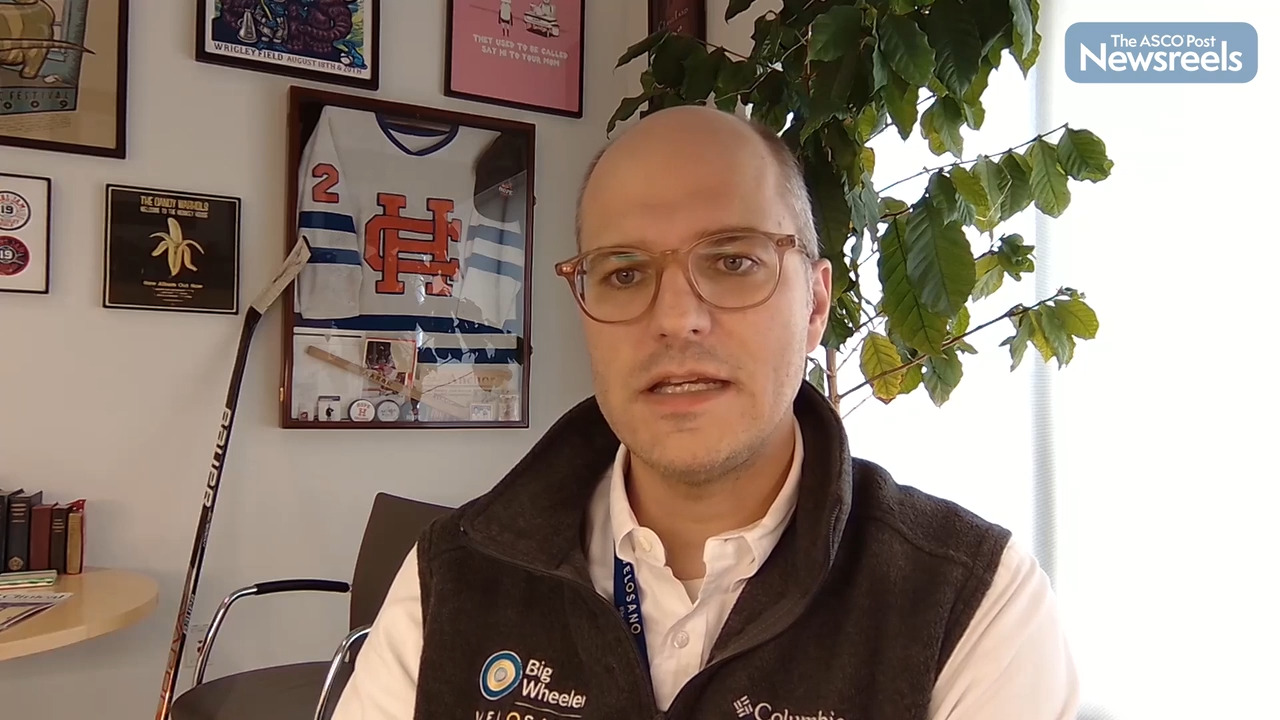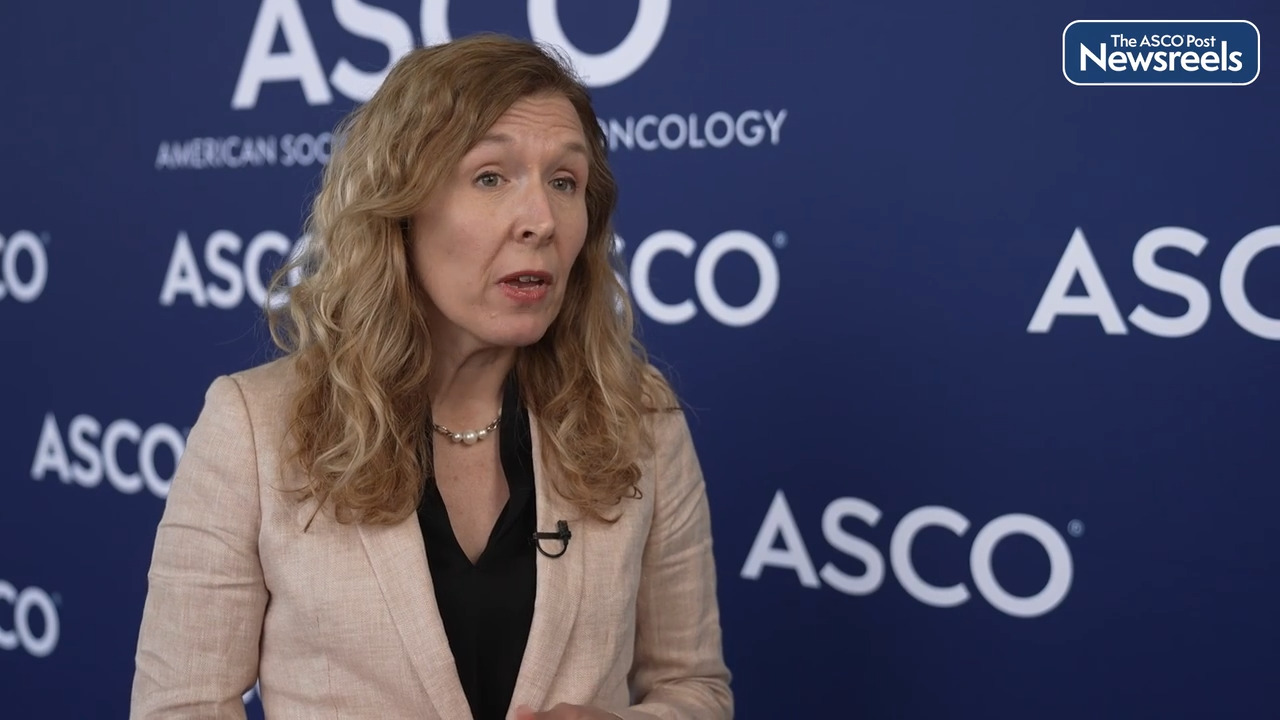Christian Pfister, MD, PhD, on Bladder Cancer: New Overall Survival Data on Perioperative Chemotherapy
2023 ASCO Annual Meeting
Christian Pfister, MD, PhD, of Rouen University Hospital, discusses phase III results from the VESPER trial, which showed that dose-dense methotrexate, vinblastine, doxorubicin, and cisplatin provided a better overall survival rate at 5 years and improved disease-specific survival compared with gemcitabine as perioperative chemotherapy in patients with muscle-invasive bladder cancer (Abstract LBA4507).
Transcript
Disclaimer: This video transcript has not been proofread or edited and may contain errors.
Since 20 year, VESPER is the only randomized [inaudible 00:00:12] trial comparing the efficacy of GC or dose-dense MVAC in perioperative setting in muscle-invasive bladder cancer. On a period of 5 years, we randomized 500 patients in 28 French cancer centers. 56 patient in the neoadjuvant group and the [inaudible 00:00:36] majority, 88% of patient in the neoadjuvant group. The primary endpoint of the VESPER trial was a progression-free survival of 3 years, with [inaudible 00:00:49]. On [inaudible 00:00:52], we present the overall survival at 5 year, and the disease-specific survival of the trial. Dose-dense MVAC allow better overall survival at 5 years than GC in the perioperative setting. In the neoadjuvant group, overall survival was significantly higher, with a 5-year wait of 66 verus 57 persons. Moreover, dose-dense MVAC improved significantly disease-specific survival at 5 years in the perioperative setting. Interestingly, we stratified the 5-year overall survival curve by [inaudible 00:01:36], and dose cisplatin receive.
This representation clearly divides the study population in three group, and confirms the importance of cumulative cisplatin dose. We have the first group pool of all survival with less than four full-dose cisplatin, median of overall survival for GC-arm with four full-dose cisplatin, and higher survival with dose-dense MVAC with four or more full-cisplatin dose. My take-home message are VESPER is worthy of milestone in the history of chemotherapy for muscle-invasive bladder cancer. Dose-dense MVAC provides a better overall survival at 5 years, and significantly improved disease-specific survival over GC in the perioperative setting. Our result confirms the indisputable superiority of dose-dense MVAC over GC as neoadjuvant chemotherapy. Finally, VESPER is practice-changing and showed tumoral impact on clinical cancer research in bladder cancer.
Ajay K. Nooka, MBBS, of Winship Cancer Center of Emory University, discusses findings from a pooled analysis of MagnetisMM studies. The data showed that, in patients with relapsed or refractory multiple myeloma who have not yet been treated with B-cell maturation antigen–directed therapies, elranatamab was efficacious and well tolerated.
The ASCO Post Staff
Allison Betof Warner, MD, PhD, of Stanford University Medical Center, and Zeynep Eroglu, MD, of H. Lee Moffitt Cancer Center and Research Institute, discusses phase II findings showing that in patients with BRAF-mutant metastatic melanoma, dabrafenib plus trametinib and navitoclax (DTN) was associated with a complete response rate of 20% and an overall response rate of 84%. Additionally, there was a trend toward improved overall survival in patients treated with DTN compared with dabrafenib plus trametinib alone; the difference in overall survival was more pronounced in patients with a smaller tumor burden (Abstract 9511).
The ASCO Post Staff
Aaron T. Gerds, MD, of Cleveland Clinic Taussig Cancer Institute, talks about treating the anemia many patients with myelofibrosis experience because of JAK inhibitor therapy. The ACE-536-MF-001 study showed that luspatercept improved anemia and transfusion burden in this population, with a safety profile consistent with that in previous studies (Abstract 7016).
The ASCO Post Staff
Nirav N. Shah, MD, of the Medical College of Wisconsin, discusses phase II results showing that split-dose R-CHOP offers older patients with diffuse large B-cell lymphoma (DLBCL) an equivalent dose intensity as R-CHOP-21 through a fractionated dosing schedule, improving tolerability. At the end of treatment for these older patients, a complete response rate of 71% was comparable to outcomes with R-CHOP in younger patients with the disease (Abstract 7554).
The ASCO Post Staff
Jennifer A. Ligibel, MD, of Dana-Farber Cancer Institute, discusses a telephone-based weight loss intervention that induced clinically meaningful weight loss in patients with breast cancer who had overweight and obesity, across demographic and tumor factors. Additional tailoring of the intervention may possibly enhance weight loss in Black and younger patients as well (Abstract 12001).




